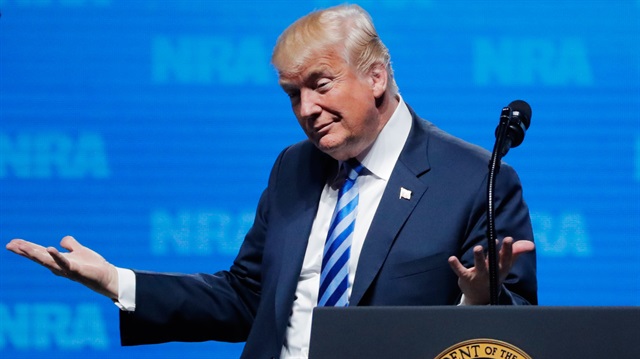
Forthcoming book details inner workings of administration alleges an 'administrative coup d’etat'
A forthcoming book detailing the inner workings of U.S. President Donald Trump's White House alleges an “administrative coup d’etat,” within the administration.
It includes at least one instance of a senior aide pulling documents off the president's desk in an effort to prevent him from pulling out of a free trade deal with South Korea, according to Bob Woodward's "Fear: Trump in the White House."
Woodward said Gary Cohn, Trump's former chief economic advisor, "stole a letter off Trump’s desk” that would have formally withdrawn the U.S. from the pact.
Cohn carried out a similar effort when Trump sought to pull the U.S. out of a North American Free Trade Agreement in the spring of 2017, according to the Washington Post, the newspaper with whom Woodward has worked since 1971.
The Post published details of the book ahead of its Sept. 11 release.
Cohn, according to the newspaper's account of the book, "came to regard the president as 'a professional liar,'" and threatened to resign in the wake of Trump's handling of an August 2017 white supremacist rally in Charlottesville, Virginia.
Trump had initially drawn widespread criticism for saying there were "very fine people" on both sides of the protest. He later condemned neo-Nazis and white supremacists.
Woodward said Trump came to regard his backtracking as "the biggest f***ing mistake I’ve made," and the "worst speech I’ve ever given."
Following an April 2017 chemical attack blamed on the Syrian regime, Trump called on Defense Secretary James Mattis to come up with plans to kill Syria's Bashar al-Assad and his top cadre.
"Let’s f***ing kill him! Let’s go in. Let’s kill the f***ing lot of them,” Trump said, according to Woodward.
But after Mattis told him he would quickly draw up the plans, he told a senior aide: "We’re not going to do any of that. We’re going to be much more measured."
Trump would later order a strike on an airbase the U.S. assessed was used to carry out the chemical attack.
Trump's oftentimes uncontrollable temper and unpredictability led top aides and officials to adopt a policy of discretion when they were around him, including an alliance among some "traditionalists," including Cohn and Mattis, to thwart what they considered to be dangerous acts.
“It felt like we were walking along the edge of the cliff perpetually,” former staff secretary Rob Porter said, according to Woodward. “Other times, we would fall over the edge, and an action would be taken.”


